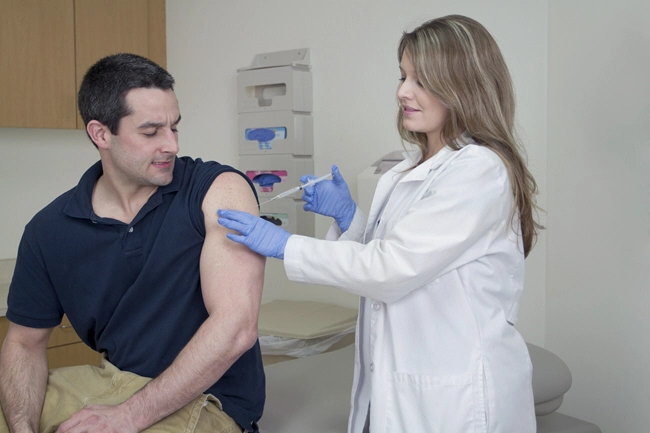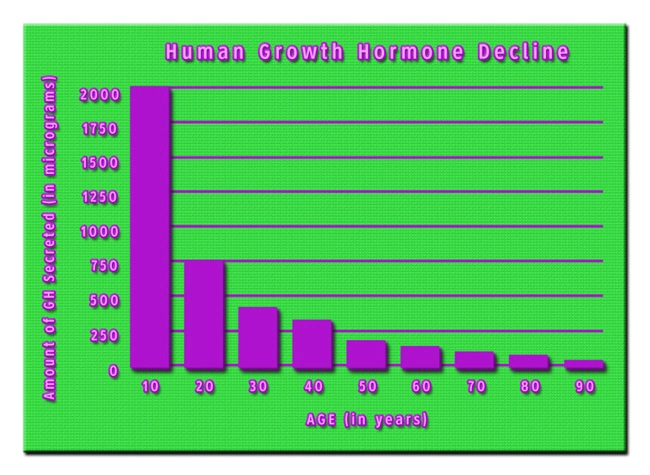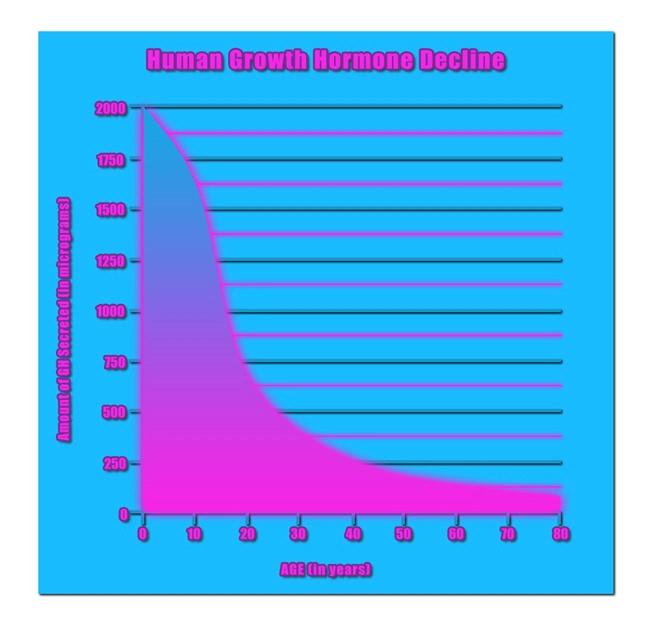
Introduction
The utilization of testosterone replacement therapy, such as Androgel testosterone gel, has become increasingly prevalent among American males seeking to address hypogonadism and its associated symptoms. While the short-term benefits of testosterone supplementation are well-documented, the long-term cardiovascular risks associated with such therapies remain a topic of intense debate and research. This article delves into a retrospective cohort study that investigates the cardiovascular implications of long-term Androgel use among American men, aiming to provide crucial insights into the safety profile of this widely used treatment.
Study Design and Methodology
The study in question adopted a retrospective cohort design, analyzing data from a large database of American males who had been prescribed Androgel testosterone gel for testosterone replacement therapy. The cohort was divided into two groups: those who continued Androgel use for an extended period (defined as more than two years) and those who discontinued the therapy within two years. The primary outcome of interest was the incidence of major adverse cardiovascular events (MACE), including myocardial infarction, stroke, and cardiovascular death.
Key Findings
The results of the study revealed a statistically significant association between long-term Androgel use and an increased risk of MACE among American males. Specifically, the group that continued Androgel therapy for more than two years exhibited a 1.3-fold higher risk of experiencing a major adverse cardiovascular event compared to the group that discontinued the treatment within two years. This finding suggests that prolonged exposure to testosterone supplementation via Androgel may contribute to an elevated cardiovascular risk in this population.
Potential Mechanisms
Several potential mechanisms have been proposed to explain the observed association between long-term Androgel use and increased cardiovascular risk. One hypothesis suggests that testosterone supplementation may lead to adverse changes in lipid profiles, including reduced HDL cholesterol levels and increased LDL cholesterol levels, which are known risk factors for cardiovascular disease. Additionally, testosterone has been shown to stimulate erythropoiesis, potentially leading to increased blood viscosity and a higher risk of thrombosis. Further research is needed to elucidate the precise mechanisms underlying this association and to identify potential mitigating factors.
Clinical Implications
The findings of this study have significant implications for the clinical management of American males undergoing testosterone replacement therapy with Androgel. Healthcare providers should carefully weigh the potential benefits of long-term testosterone supplementation against the increased cardiovascular risk, particularly in patients with pre-existing cardiovascular risk factors. Regular monitoring of cardiovascular health, including lipid profiles and hematocrit levels, may be warranted in patients receiving long-term Androgel therapy. Moreover, alternative treatment options, such as lifestyle modifications or other forms of testosterone replacement, should be considered for patients at high cardiovascular risk.
Limitations and Future Directions
While this retrospective cohort study provides valuable insights into the long-term cardiovascular risks associated with Androgel use, it is not without limitations. The study relied on data from a single database, which may limit the generalizability of the findings to the broader population of American males. Additionally, the study did not account for potential confounding factors, such as lifestyle habits and concomitant medication use, which may have influenced the observed association. Future research should aim to validate these findings in larger, more diverse cohorts and explore the role of potential confounders in greater detail. Moreover, prospective studies investigating the cardiovascular effects of Androgel use in a controlled setting would provide further clarity on this important topic.
Conclusion
The findings of this retrospective cohort study underscore the need for heightened awareness of the potential long-term cardiovascular risks associated with Androgel testosterone gel use among American males. While testosterone replacement therapy can provide significant benefits for patients with hypogonadism, the increased risk of major adverse cardiovascular events observed in this study necessitates a cautious approach to long-term Androgel use. Healthcare providers should engage in shared decision-making with their patients, carefully considering the potential risks and benefits of testosterone supplementation and implementing appropriate monitoring and management strategies to mitigate cardiovascular risk. As research in this field continues to evolve, it is crucial that American males and their healthcare providers remain informed and vigilant in the pursuit of optimal health and well-being.
Contact Us Today For A Free Consultation
Dear Patient,
Once you have completing the above contact form, for security purposes and confirmation, please confirm your information by calling us.
Please call now: 1-800-380-5339.
Welcoming You To Our Clinic, Professor Tom Henderson.

- Androgel's Impact on Skin Health and Appearance in American Men: Benefits and Risks [Last Updated On: March 18th, 2025] [Originally Added On: March 18th, 2025]
- Androgel: A Promising Solution for Male Infertility in American Men [Last Updated On: March 18th, 2025] [Originally Added On: March 18th, 2025]
- Androgel Therapy: Economic Impact and Accessibility for American Men with Hypogonadism [Last Updated On: March 19th, 2025] [Originally Added On: March 19th, 2025]
- Androgel Therapy: Benefits, Misconceptions, and Informed Decision-Making for American Men [Last Updated On: March 20th, 2025] [Originally Added On: March 20th, 2025]
- Androgel: Enhancing Cognitive Function in American Men with Low Testosterone [Last Updated On: March 20th, 2025] [Originally Added On: March 20th, 2025]
- Androgel: Enhancing Sleep Quality in American Men with Low Testosterone [Last Updated On: March 20th, 2025] [Originally Added On: March 20th, 2025]
- Androgel: Enhancing Life Quality for American Men with HIV/AIDS Through Testosterone Therapy [Last Updated On: March 20th, 2025] [Originally Added On: March 20th, 2025]
- Androgel Use and Prostate Health: Risks, Monitoring, and Management Strategies [Last Updated On: March 21st, 2025] [Originally Added On: March 21st, 2025]
- Androgel: A Promising Solution for Chronic Pain in American Men [Last Updated On: March 21st, 2025] [Originally Added On: March 21st, 2025]
- Androgel Use and Hair Loss: Risks, Studies, and Management Strategies [Last Updated On: March 21st, 2025] [Originally Added On: March 21st, 2025]
- Androgel: Enhancing Weight Management in Men with Low Testosterone [Last Updated On: March 22nd, 2025] [Originally Added On: March 22nd, 2025]
- Androgel: Enhancing Emotional Well-being in American Men through Testosterone Therapy [Last Updated On: March 22nd, 2025] [Originally Added On: March 22nd, 2025]
- Androgel: Enhancing Vitality in Aging American Men Through Testosterone Therapy [Last Updated On: March 22nd, 2025] [Originally Added On: March 22nd, 2025]
- Androgel's Impact on Kidney Function in American Men: Benefits and Risks [Last Updated On: March 23rd, 2025] [Originally Added On: March 23rd, 2025]
- Androgel: Enhancing Sports Injury Recovery in American Men - Benefits and Risks [Last Updated On: March 23rd, 2025] [Originally Added On: March 23rd, 2025]
- Androgel: A Promising Treatment for Sleep Apnea in American Men [Last Updated On: March 23rd, 2025] [Originally Added On: March 23rd, 2025]
- Androgel's Role in Managing Fibromyalgia Symptoms in American Men: A Comprehensive Overview [Last Updated On: March 23rd, 2025] [Originally Added On: March 23rd, 2025]
- Androgel's Impact on Digestive Health in American Men: A Comprehensive Overview [Last Updated On: March 24th, 2025] [Originally Added On: March 24th, 2025]
- Androgel's Role in Managing Multiple Sclerosis Symptoms in American Men [Last Updated On: March 24th, 2025] [Originally Added On: March 24th, 2025]
- Androgel: Balancing Benefits and Heart Health Risks in American Men's Testosterone Therapy [Last Updated On: March 24th, 2025] [Originally Added On: March 24th, 2025]
- Androgel's Potential Benefits for Asthma Management in American Men [Last Updated On: March 24th, 2025] [Originally Added On: March 24th, 2025]
- Androgel: Enhancing Quality of Life for Men on Chemotherapy [Last Updated On: March 25th, 2025] [Originally Added On: March 25th, 2025]
- Androgel: A Comprehensive Aid for American Men in Obesity Battle [Last Updated On: March 25th, 2025] [Originally Added On: March 25th, 2025]
- Androgel: Enhancing Immune Function in American Men with Low Testosterone [Last Updated On: March 25th, 2025] [Originally Added On: March 25th, 2025]
- Androgel: A Promising Treatment for Chronic Fatigue Syndrome in American Men [Last Updated On: March 25th, 2025] [Originally Added On: March 25th, 2025]
- Androgel: A Promising Treatment for Chronic Sinusitis in American Men [Last Updated On: March 25th, 2025] [Originally Added On: March 25th, 2025]
- Androgel: A Potential New Treatment for ADHD in American Men [Last Updated On: March 25th, 2025] [Originally Added On: March 25th, 2025]
- Androgel: Potential Relief for Seasonal Allergies in American Men [Last Updated On: March 25th, 2025] [Originally Added On: March 25th, 2025]
- Androgel Use and Potential Hearing Loss in American Men: A Comprehensive Overview [Last Updated On: March 25th, 2025] [Originally Added On: March 25th, 2025]
- Maximizing Androgel Therapy Benefits with Lifestyle Changes for American Men [Last Updated On: March 25th, 2025] [Originally Added On: March 25th, 2025]
- Androgel Use and Hypertension Management in American Men: A Comprehensive Guide [Last Updated On: March 26th, 2025] [Originally Added On: March 26th, 2025]
- Androgel Use and Increased Blood Clot Risk in American Men: A Comprehensive Overview [Last Updated On: March 26th, 2025] [Originally Added On: March 26th, 2025]
- Androgel Use and Its Effects on Thyroid Health in Men: A Comprehensive Guide [Last Updated On: March 26th, 2025] [Originally Added On: March 26th, 2025]
- Androgel's Potential Benefits for American Men with Epilepsy: A Comprehensive Overview [Last Updated On: March 26th, 2025] [Originally Added On: March 26th, 2025]
- Androgel's Potential in Managing Migraines: A Review for American Men [Last Updated On: March 26th, 2025] [Originally Added On: March 26th, 2025]
- Androgel: A Promising Therapy for CKD and Low Testosterone in American Men [Last Updated On: March 27th, 2025] [Originally Added On: March 27th, 2025]
- Androgel Use and Liver Health: Monitoring and Lifestyle Tips for American Men [Last Updated On: March 27th, 2025] [Originally Added On: March 27th, 2025]
- Androgel: A Novel Approach to Managing Arthritis Pain in American Men [Last Updated On: March 27th, 2025] [Originally Added On: March 27th, 2025]
- Androgel: Exploring Its Potential in Preventing Eye Diseases in American Men [Last Updated On: March 27th, 2025] [Originally Added On: March 27th, 2025]
- Androgel Use and Its Impact on Dental Health in American Men [Last Updated On: March 27th, 2025] [Originally Added On: March 27th, 2025]
- Androgel: Benefits for Low Testosterone vs. Potential Skin Cancer Risks in Men [Last Updated On: March 27th, 2025] [Originally Added On: March 27th, 2025]
- Androgel: Enhancing Life Quality in Men with Autoimmune Disorders [Last Updated On: March 27th, 2025] [Originally Added On: March 27th, 2025]
- Androgel's Potential Benefits for American Men with ALS: A Comprehensive Overview [Last Updated On: March 27th, 2025] [Originally Added On: March 27th, 2025]
- Androgel's Potential in Managing Parkinson’s Disease in American Men: Current Insights [Last Updated On: March 27th, 2025] [Originally Added On: March 27th, 2025]
- Androgel's Role in Enhancing Stroke Recovery: Benefits and Safety Considerations [Last Updated On: March 28th, 2025] [Originally Added On: March 28th, 2025]
- Androgel: Enhancing Post-Surgical Recovery in American Men [Last Updated On: March 28th, 2025] [Originally Added On: March 28th, 2025]
- Androgel: Potential Benefits and Cautions for Anxiety Management in American Men [Last Updated On: March 28th, 2025] [Originally Added On: March 28th, 2025]
- Androgel: Enhancing Life Quality for American Men with COPD Through Testosterone Therapy [Last Updated On: March 28th, 2025] [Originally Added On: March 28th, 2025]
- Androgel Use in Diabetic Men: Benefits, Risks, and Management Strategies [Last Updated On: March 28th, 2025] [Originally Added On: March 28th, 2025]
- Androgel's Role in Managing Gout: Benefits and Clinical Insights for American Men [Last Updated On: March 28th, 2025] [Originally Added On: March 28th, 2025]
- Androgel Use in Men with Crohn's: Management Strategies and Considerations [Last Updated On: March 30th, 2025] [Originally Added On: March 30th, 2025]
- Androgel's Potential in Managing Rheumatoid Arthritis for American Men: A Review [Last Updated On: April 1st, 2025] [Originally Added On: April 1st, 2025]
- Androgel: A Promising Therapy for Scleroderma in American Men [Last Updated On: April 1st, 2025] [Originally Added On: April 1st, 2025]
- Androgel's Potential in Managing Ulcerative Colitis in American Men: An Overview [Last Updated On: April 2nd, 2025] [Originally Added On: April 2nd, 2025]
- Androgel's Potential in Managing Lupus Symptoms in American Men: A Comprehensive Review [Last Updated On: April 3rd, 2025] [Originally Added On: April 3rd, 2025]
- Navigating Androgel Use and Celiac Disease: A Comprehensive Guide for American Men [Last Updated On: April 6th, 2025] [Originally Added On: April 6th, 2025]
- Androgel's Role in Enhancing Heart Attack Recovery in American Men [Last Updated On: April 6th, 2025] [Originally Added On: April 6th, 2025]
- Androgel: A Novel Adjunct Therapy for Psoriasis in American Men [Last Updated On: April 8th, 2025] [Originally Added On: April 8th, 2025]
- Androgel Use in American Men: Managing Acne Side Effects Effectively [Last Updated On: April 9th, 2025] [Originally Added On: April 9th, 2025]
- Androgel: A Potential but Unproven Treatment for Eczema in American Men [Last Updated On: April 9th, 2025] [Originally Added On: April 9th, 2025]
- Androgel: A Promising Treatment for Alopecia in American Men [Last Updated On: April 9th, 2025] [Originally Added On: April 9th, 2025]
- Androgel's Role in Managing Rosacea: Efficacy and Application in American Men [Last Updated On: April 9th, 2025] [Originally Added On: April 9th, 2025]
- Androgel Use and Shingles Management: A Comprehensive Guide for American Men [Last Updated On: April 11th, 2025] [Originally Added On: April 11th, 2025]
- Androgel: A Promising Aid for American Men Managing Herpes Outbreaks [Last Updated On: April 11th, 2025] [Originally Added On: April 11th, 2025]
- Androgel: Enhancing Life Quality for American Men with HIV through Testosterone Therapy [Last Updated On: April 11th, 2025] [Originally Added On: April 11th, 2025]
- Androgel's Potential in Managing Vitiligo for American Men: A Comprehensive Overview [Last Updated On: April 12th, 2025] [Originally Added On: April 12th, 2025]
- Androgel Enhances Burn Recovery in American Men: Physical and Psychological Benefits [Last Updated On: April 12th, 2025] [Originally Added On: April 12th, 2025]
- Androgel's Potential Role in Malaria Treatment: A Promising Yet Unproven Hypothesis [Last Updated On: April 16th, 2025] [Originally Added On: April 16th, 2025]
- Androgel's Potential in Managing Zika Symptoms in American Men: A Testosterone Therapy Insight [Last Updated On: April 17th, 2025] [Originally Added On: April 17th, 2025]
- Androgel's Role in Managing Chikungunya Symptoms in American Men [Last Updated On: April 17th, 2025] [Originally Added On: April 17th, 2025]
- Androgel's Potential in Enhancing Hepatitis C Treatment for American Men [Last Updated On: April 17th, 2025] [Originally Added On: April 17th, 2025]
- Androgel's Potential in Enhancing Immune Response to Ebola in American Men [Last Updated On: April 17th, 2025] [Originally Added On: April 17th, 2025]
- Androgel's Role in Enhancing Dengue Recovery Among American Males [Last Updated On: April 17th, 2025] [Originally Added On: April 17th, 2025]
- Lyme Disease in American Men: Androgel's Role in Managing Symptoms [Last Updated On: April 17th, 2025] [Originally Added On: April 17th, 2025]
- Androgel's Potential in Treating Tuberculosis Among American Men: A New Approach [Last Updated On: April 17th, 2025] [Originally Added On: April 17th, 2025]
- Exploring Androgel's Potential in Managing Yellow Fever in American Men [Last Updated On: April 18th, 2025] [Originally Added On: April 18th, 2025]
- Androgel Use and West Nile Virus: Impacts on American Men's Health [Last Updated On: April 19th, 2025] [Originally Added On: April 19th, 2025]
- Androgel's Potential in Managing Rabies Symptoms: A Neuroprotective Approach [Last Updated On: April 22nd, 2025] [Originally Added On: April 22nd, 2025]
- Androgel's Impact on Flu Recovery in American Men: Benefits and Precautions [Last Updated On: April 22nd, 2025] [Originally Added On: April 22nd, 2025]
- Androgel: Comprehensive Guide to Testosterone Therapy for American Males with Hypogonadism [Last Updated On: April 23rd, 2025] [Originally Added On: April 23rd, 2025]








